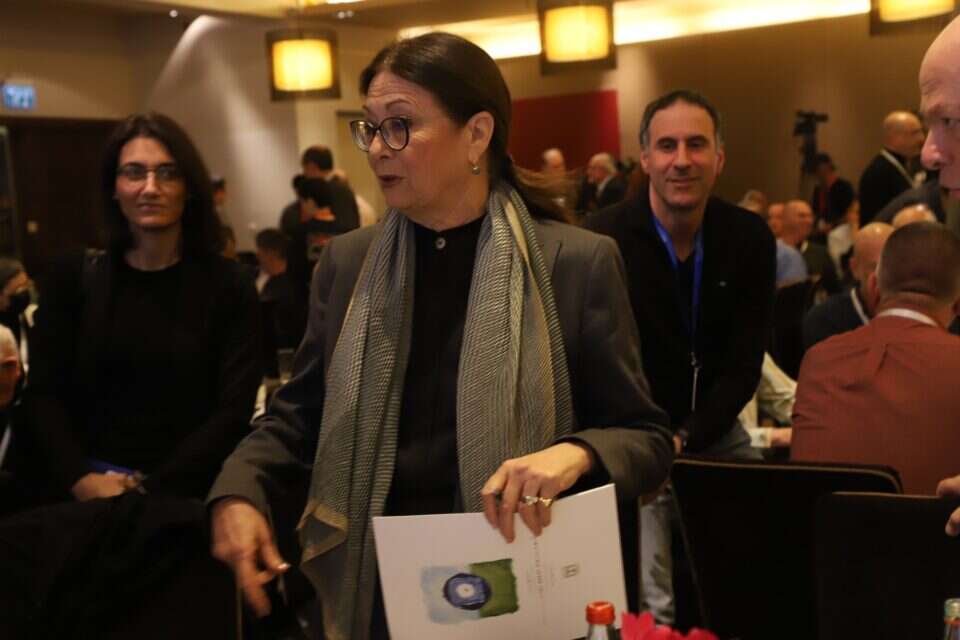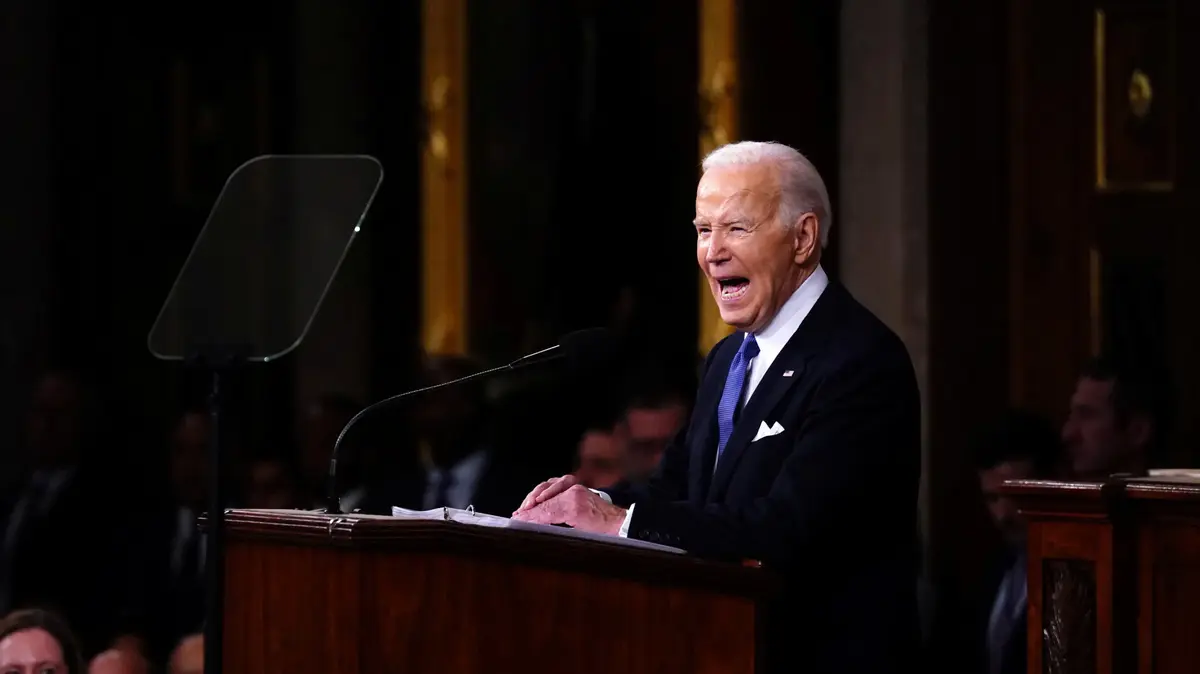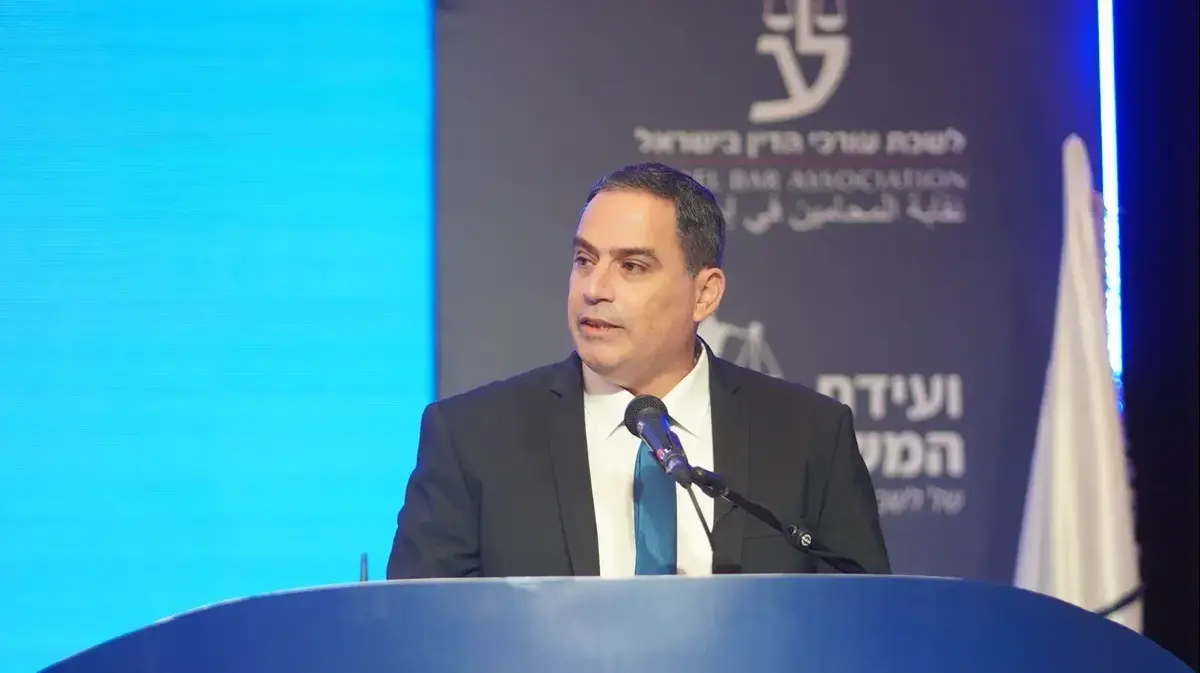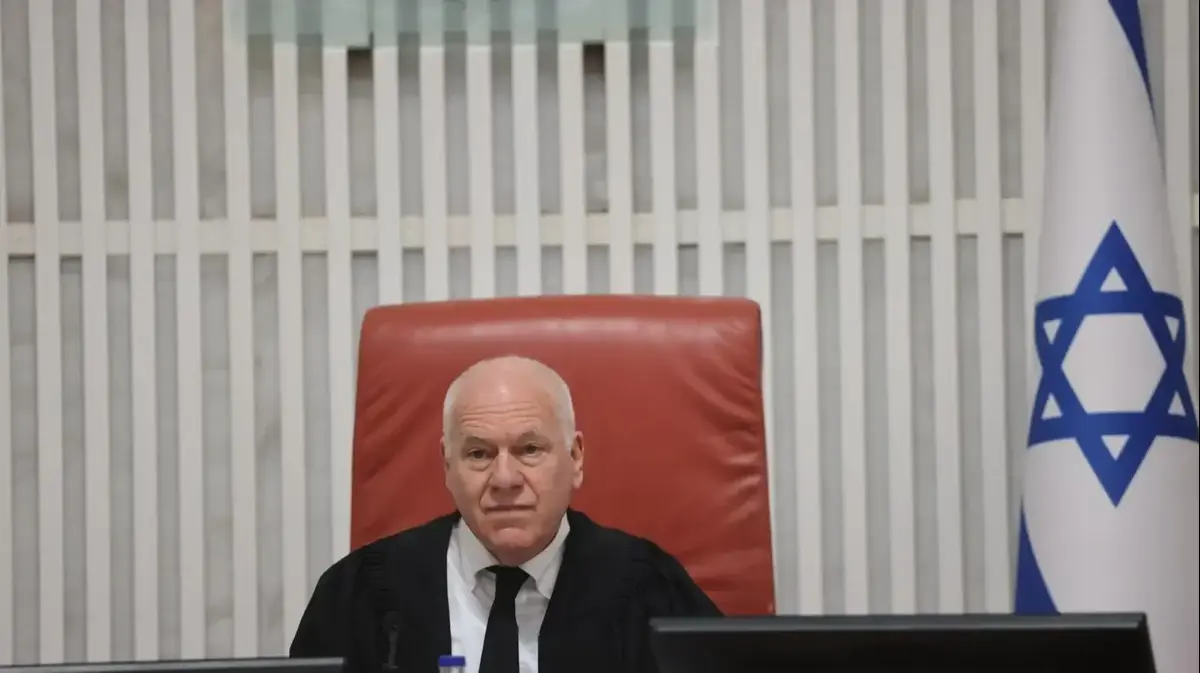Supreme Court President Esther Hayut attacked the government's legal reform this evening (Thursday) in an unprecedented speech.
Here is the full and extraordinary speech
The unprecedented attack of Supreme Court President Ester Hayut on the government // Photo: Shmuel Buchris
"A few days ago, the new Minister of Justice presented a lightning-quick plan for far-reaching changes in the justice system. In fact, it is an all-out attack on the justice system, as if it were an enemy that must be attacked and subdued. Ironically, the masterminds of the plan call it a plan to "fix" the justice system. And I Says - this is a plan to crush the judicial system. It is intended to deal a fatal blow to the independence and independence of the judiciary and turn it into a silent authority.
"This conclusion emerges both from the way in which the minister chose to present his plan and from its content and substance. There is no other way to understand the dramatic press conference that the minister chose to hold only a few days after taking office, in which he presented his plan for the first time. As I have mentioned more than once - the independence and non- The judicial dependencies are the lifeblood of the court, and without them the judges of Israel will not be able to fulfill their role as public servants and its loyalists.
"This year the State of Israel will mark 75 years of independence as a Jewish and democratic state. This is an important milestone in the life of the state - but unfortunately, as the plan of changes that was presented is realized, the 75th year will be remembered as the year in which the democratic identity of the state was dealt a fatal blow. In recent days we have all heard that the main reasoning To justify the plan is the will of the majority and the decision of the majority. Indeed, 'rule of the majority' is a fundamental principle that stands at the foundation of the democratic regime - but democracy is not only the rule of the majority. Anyone who claims that the majority that elected its representatives to the Knesset, thereby gave them an "open check" to do as they please on their spirit, bearing the name of democracy in vain.
"Zev Jabotinsky, whose new Minister of Justice testifies to himself that he was educated on the knees of his teachings, wrote as early as 1938, about a decade before the establishment of the state, that 'Democracy means freedom. Even a government supported by a majority can deny freedom. And where there are no guarantees Individual freedom - there is no democracy there'. One of the distinct functions of a court in a democratic country is to provide effective protection for human and citizen rights in the country. An independent and independent court is, therefore, one of the most important guarantees for individual freedom that Jabotinsky spoke of. It is the guarantee So that the rule of the majority does not turn into the tyranny of the majority.
"What does the minister's change plan seek to do? In fact, it seeks to take away from the hands of the judges the legal tools they use to protect individual rights and the rule of law. The plan talks about a superseding clause that will deny the court the possibility of annulling laws that disproportionately harm constitutional human rights, Including the right to life, property, freedom of movement and privacy, as well as the fundamental right to respect, and as a derivative of it - the right to equality, the right to freedom of expression and more.
"The planned superseding clause empowers the Knesset, with the support of the government, to enact laws that would harm these rights without hindrance. That is why those who think that the superseding clause 'supersedes' the court are wrong. In fact, it is about overcoming the human rights of each and every individual in Israeli society. Another legal tool And it is important that the program seeks to take from the hands of the judges - the reason of reasonableness by virtue of which the court in appropriate cases rejects decisions of the government authorities that have an administrative defect - for example, of arbitrariness, ignoring relevant considerations or an incorrect balance between the considerations necessary to the matter.
"Those in favor of canceling the reason for reasonableness claim that these are ethical and professional decisions, and that for the purpose of examining the degree of reasonableness of the Authority's decision, the judge does not have any priority over the governmental entity that made the decision. In my view, this is a difficult argument. If there is no room for an ethical decision by the judge regarding the reasonableness of the governmental decision, the next step - according to the same logic - it is possible that the judge does not have any professional advantage to also determine what is 'reasonable doubt' for the purpose of acquitting a criminal defendant.
"Perhaps, according to the same logic, we can add and claim that the judge has no advantage in deciding whether a doctor or an engineer, for example, was negligent because they did not act as a 'reasonable doctor' or a 'reasonable engineer' and caused damage that warrants compensation. In fact, even the decision of whether parties who entered into a contract acted b. In good faith and in an acceptable manner' is a value decision, and perhaps the judge does not have any priority in this matter either? From here the road is short until the deletion of extensive chapters in the various branches of Israeli law, all immersed in value standards that the judge must examine and decide on.
"Another question is to what extent the court knows how to exercise restraint and make careful and responsible use of the legal tools in question, that is, invalidating laws due to disproportionate damage to human rights and annulling decisions of a governmental authority because they are extremely unreasonable. I think that over the years the court has proven that it is indeed Practices restraint and responsibility and does not make unnecessary use of these tools. Those in favor of the change plan try to paint a different picture as a means to realize their plan.
"But the data tell the truth and teach that these are false claims and that the changes outlined in the plan are not only not required in order to balance the authorities, their implementation is what improved the delicate balance between them a serious and dangerous violation. To illustrate how false claims these are, I would point out that since the enactment of a law - Foundation: human dignity and freedom In March 1992 and until today, for over thirty years, the Supreme Court intervened in 21 laws or articles of law, out of thousands of laws enacted by the Knesset during this period of time.
"Data concerning other democratic countries, such as the United States, Canada and Germany, show that the rate of invalidation of laws by the courts there is immeasurably higher than that in Israel. Overturning decisions of administrative authorities on the grounds of reasonableness is not a vision that has been breached in the rulings of our courts over the years. A substantive and unbiased review of the ruling will show that the court refrained from converting the Authority's discretion into its own.
"But the expectation that the court will remain silent even in those exceptional cases in which the government violates its obligations to the individual - is a dangerous expectation. It contradicts the place of the court in the democratic system of balances, and it is contrary to the biblical commandment instructing Israel's judges to 'do not live before anyone' - and in the language The midrash: 'You shall not hide your words out of fear of anyone.' the government
"This is about denying legal tools that belong to the public, that exist for the public, and that are used by the court for the benefit of the public. With the help of these tools, the court grants relief to anyone who has suffered an injustice that requires correction, and maintains the rule of law and human rights, which are fundamental principles of democracy. In the sense This, the theoretical concepts of 'repeal of laws' and 'reasonableness' translate directly into the practical life of every citizen and resident of the country.
"Whoever tells you 'no more disqualification of laws', actually means:
- 'no more prohibition on detaining soldiers for long days without bringing them before a judge', as the court ruled in the Tzemach case.
- 'no more protection of the right of car owners to receive a guarantee benefit income', as the court ruled in the Hasan case.
- 'No more exercising the right of same-sex couples to parenthood and a full family life', as the court ruled in the Ard-Panks case. And whoever tells you 'no more disqualification of radically unreasonable decisions' , actually means:
"- 'No more ban on cutting off electricity for citizens with financial or medical difficulties,' as the court ruled in the Moisa case.
- 'No more full protection for all educational institutions in the Gaza Strip,' as the court ruled in the Vosser case.
- 'No more cancellation of restrictions .
strictures on the freedom of political expression in newspapers and demonstrations', as the court ruled in the Schnitzer case, and in many other cases.
- 'It is no longer an obligation for a local council to build a mikveh for mitzvah-observant women in a locality where the majority is secular,' as the court ruled in the Kfar Veradim case.
-' No more protection of the right of children with special needs to receive free special education, even when they were integrated into the regular education frameworks', as the court ruled in the case of 14.
Not anymore, and these are just a few examples.
"In other words, if the decisions of the government will be the end of the sentence and the court will be devoid of tools to fulfill its role - it will not be possible to guarantee the protection of rights in those cases where the government authorities will harm them with legislation or an administrative decision, to an extent that exceeds what is required. Unfortunately, the backlog of initiatives that excites us like a flood And in haste it is not satisfied with these vulnerabilities, and it also includes a deep structural change in the composition of the committee for the selection of judges and in its work format.
"What is the reasoning given by the initiators of the program in an attempt to justify the need to fundamentally change the method of appointing judges in Israel, and to establish a committee in which an 'automatic' majority will be given to politicians? The reasoning that arises in this context is that Israeli judges supposedly elect themselves 'in chambers and without protocol'. There is no truth in these claims. The Committee for the Selection of Judges in its current form was enshrined in law as early as 1953, five years after the establishment of the state, and was copied in 1984 into the Basic Law: the Judiciary. This committee selects Israeli judges in all courts, and it includes two ministers - including the Minister of Justice who heads it - and Two Knesset members, two members of the Bar Association, and three judges.
"A perusal of the statements of the Knesset shows that the committee in its form was established out of a broad consensus of the coalition and the opposition in the Knesset at the time, regarding the need to ensure the independence and independence of Israeli judges. Member of the Knesset Menachem Begin, who was in the opposition at the time, said in plenary - and I quote - We come to guarantee the independence of the judges, and for that we must guarantee, if possible, the independence of their members.'
"And in another place, Begin warned against a situation where 'it is the government that will actually appoint our judges.' of five out of nine members of the committee, and to elect a judge to the Supreme Court a special majority of seven out of nine is required - and this requires broad agreement among its members.
"It must not be ruled out, no method for appointing judges is completely immune to unusual events, and all methods have advantages and disadvantages. But in the end, the Israeli method for appointing judges is balanced, professional, and guarantees fair and full representation to all relevant parties. It is not for nothing that our method is highly regarded In the world, and thanks to her, thousands of excellent judges and registrars have been appointed in Israel over the years - who did and do their jobs with dedication, and out of a deep commitment to the rule of law and the entire Israeli public.
"The additional claim that the selection procedure for the committee is carried out 'in private rooms' and without a protocol, is also unfounded. The discussions in the committee are documented in a full and detailed protocol. Parts of the protocol are confidential, just as the transcripts of government meetings are also confidential, but any part that can be published - for example those parts which do not violate the individual modesty of the candidates - is published to the public. The baseless claims raised against the existing system for electing judges are intended to cover up the real reason for which the minds of the change program are working, and that is - the desire to bring about the complete politicization of the appointment of judges in Israel, by way of establishing a committee for electing judges which In which the politicians will have an automatic majority.
"This is exactly what Begin warned at the time, saying that a situation in which 'it is the government that will actually appoint our judges' must be avoided. This warning was true then and it is true today. During my years as president, I repeated and emphasized that the judiciary is open to changes and constantly strives for improvements. Over the years We have even made many changes and improvements to optimize and improve the service we provide to the public, using technological innovations and digitization.
"Also, we are constantly working to increase transparency in the system, among other things, by holding live broadcasts of hearings from the Supreme Court and live broadcasts of hearing decisions and significant judgments in the trial courts. But the main problem was and remains the problem of the heavy burden imposed on the courts in Israel. Today there are 802 judges and 73 registrars. This means that it is about 8 judges per 100 thousand inhabitants. For comparison, in the OECD countries there are on average three times as many judges per 100 thousand inhabitants.
"Do you know how many new legal proceedings are submitted to the courts and tribunals in Israel every year? It is hard to believe, but there are no less than 850,000 proceedings. The meaning of these figures is that a judge in the State of Israel receives, on average, about a thousand new cases for his handling each year, which are added to the inventory A simple calculation will show us that even if each of Israel's judges were to work 365 days a year and 24 hours each day, there is no way that in the current state of the judges it is possible to deal with such amounts at a reasonable pace.
"This is an inhuman load that has no equal in the world. Therefore, I would like to take this opportunity to once again express my appreciation and gratitude to all the judges, registrars and registrars in all jurisdictions - who deal with this load every day and do their work faithfully out of a deep sense of mission and dedication to their duty and service The public in Israel The heavy burden imposed on the judiciary inevitably leads to an unwanted prolongation of the hearings in the courts, and in my view this is the real issue that the public in Israel longs for a solution, and so do we.
"In the first working meeting I will hold with the minister, I will present to him the real problems facing the judiciary, and the urgent need to find any way to relieve the burden placed on the judges, in order to streamline the legal process and shorten it, for the benefit of the litigating public. And to conclude, I say - the judiciary in Israel is currently holding an audit The judiciary is effective and responsible for the actions of the government and the Knesset, and in doing so it plays an important role in the system of checks and balances between the authorities.
"The responsibility for maintaining the rule of law and for the effective protection of individual rights in Israel does not rest solely on the shoulders of the judiciary. The other authorities are also required to meet this important national task. The plan of the new Minister of Justice is not a plan to fix the legal system - it is a plan to crush it. It will cause damage We believe in the independence and independence of the judges, and in their ability to faithfully fulfill their role as public servants. The meaning of this evil plan is therefore to change the democratic identity of the country beyond recognition. Mr. Minister - this is not the way!"
were we wrong
We will fix it!
If you found an error in the article, we would appreciate it if you shared it with us









